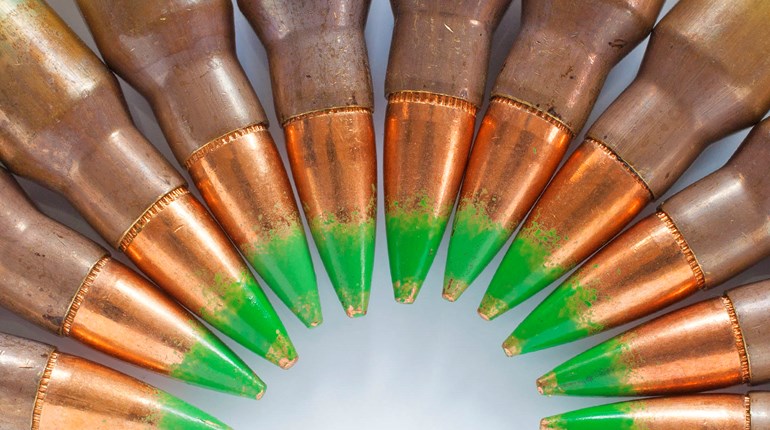
Al Qanat is a literal ghost town.
When our convoy approached the small Kurdish Army outpost in a house on the edge of town, the Peshmerga soldiers at the gate were the only sign of life. Everything else was dried mud; parched, dusty streets; and destruction.

Six months earlier, the town had been home to 1,300 souls. They were families who had lived and intermarried in this remote part of northern Iraq—all Yazidis, a minority religious sect that traces its roots back more than 6,000 years.
Then ISIS came to town. The village is surrounded by miles of desert on all sides, so there was nowhere to run. At first, ISIS fighters assured the townspeople that they had only come to collect weapons. Any weapons were to be brought to the center of the village, and no one would be harmed.
It would have been better if they had fought the invaders, even though they were outmatched by the radical Islamists’ truck-mounted machine guns and rocket launchers. Instead, they did as they were instructed, and soon a small pile of ancient rifles and a few AK-47s appeared in the town center.
Then ISIS murdered them—every man, every child. A few of the most beautiful girls were kept alive and taken away—doubtless to suffer a fate even worse than their families, who were all lined up and shot.
Before leaving the village, now populated only by the dead, ISIS painstakingly destroyed every home, leaving the village uninhabitable.
These stories have been repeated again and again across Syria and northern Iraq, as ISIS visited medieval horrors on ancient communities of Christians, Yazidis and even Sunni Kurds.
The Life of Duty team—LtCol Oliver North, cameraman Dennis Azato and myself—recently spent a week on the front lines with the Peshmerga in northern Iraq, observing as final preparations were made to retake the town of Sinjar, another place where unspeakable horrors had been visited upon the Yazidis. The Kurdish army believed this action was a crucial first step to pushing ISIS out of Iraq for good.
As of the time of our visit, the front line was over 300 kilometers long, stretching from the Syrian border east to Mosul, and then south to Tikrit. We drove hours every day, visiting all along the front, which at this point resembles something out of WWI, with well-established earthworks, bunkers and bases looking out over enemy-held territory. The fight was decidedly low intensity at most points, with snipers taking shots at one another and occasional indirect fire. As the world is galvanizing against ISIS, they are being hunted and killed across their captured “home turf.”
Despite being known as formidable fighters, the Peshmerga, for the most part, are not professional soldiers. They are farmers and teachers—a kind of “national guard” of Kurdistan. Many have not been paid in months, as a lack of assistance from Baghdad, dropping oil prices and sparse international aid have combined to stretch the Kurdish Regional Government quite thin. Even still, the area is caring for hundreds of thousands of refugees from Syria and ISIS-held towns inside Iraq. And where the government has been unable to cope, the Kurdish people have lived up to their traditions of hospitality by opening their homes and wallets to feed, clothe and house those seeking refuge. One Kurdish businessman we met paid out of his own pocket to feed more than 2,300 meals twice daily to those in need.
But what these people really need is military aid. Therein lies their greatest problem. The current U.S. administration has promised the Iraqi government that we will only deal with Baghdad when it comes to sending aid. The U.S. government claims to have sent weapons and ammunition directly to Kurdistan in 2014, but in more than a dozen interviews with senior Kurdish officials and Peshmerga generals, none claimed to have seen any of it.
The U.S. military arms, vehicles and equipment we did see in use on the front lines got there in a very circuitous fashion: The U.S. gave it to the Iraqi government when we pulled out in 2009, then the Iraqis ran away and left it for ISIS in 2014, and the Kurds later captured it from them. In this way, the Kurdish fighters have had to pay for every military vehicle and heavy weapon they receive from the United States—only they pay with blood, not dollars.
Days after we left the war zone, the Kurdish army, aided by U.S. airstrikes, pushed ISIS out of the city of Sinjar, a strategic city on the road to Syria. This leaves the ISIS-held city of Mosul cut off from resupply. At the same time, Russia and France are bombing them in Syria. As the world is galvanizing against ISIS, they are being hunted and killed across their captured “home turf.”
That’s great to hear. But the ominous possibility now is that ISIS will melt into the streams of humanity emigrating into Europe and the United States—safely out of the reach of Russian and U.S. airstrikes—where they will continue to perpetrate atrocities like we saw on Nov. 13 in Paris.
This is the bitter irony of the mass exodus from the Middle East: The majority of people are leaving to get away from the brutal terror masters, but those same extremists may be coming along for the ride.
As for America sending aid to Kurdistan directly, a Kurdish politician we met as we were leaving for the airport told us, “Americans will always do the right thing … once they have exhausted all other possibilities.”


































